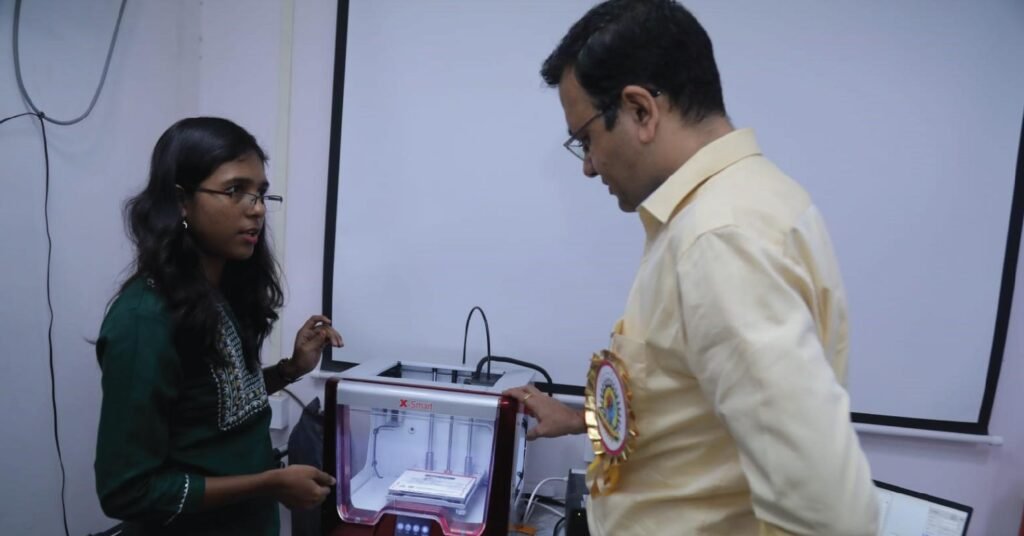In recent years, Corporate Social Responsibility (CSR) has shifted its focus towards STEM (Science, Technology, Engineering, and Mathematics) Education, recognizing its pivotal role in shaping the future. This transformation aligns with the changing landscape of education and the growing importance of STEM in various industries. Let’s delve into how CSR is making a significant impact on STEM Education and the benefits it brings.
The Shift towards STEM Education in CSR
STEM Education, once considered a niche field, has become a central point of interest for CSR initiatives. This shift is driven by the realization that a strong foundation in STEM disciplines is essential for the holistic development of students and the future of industries. By investing in STEM Education, companies not only fulfill their social responsibilities but also contribute to a talent pool well-prepared for the demands of the 21st century.
The Impact on Students and Teachers
CSR-driven STEM Education programs have a profound effect on both students and teachers. For students, these programs offer exposure to hands-on learning experiences that foster creativity and problem-solving skills. By engaging in practical activities, conducting experiments, and building projects, students gain a deeper understanding of core STEM concepts. They also learn to apply these concepts to real-world challenges, an invaluable skill for their future careers.
Qualified engineer facilitators and teachers play a crucial role in guiding students through their STEM journey. Their mentorship enhances the learning process, providing students with the necessary guidance to explore complex STEM concepts and develop innovative solutions.
Benefits of STEM Education
STEM Education goes beyond textbooks and classrooms; it equips students with a range of skills that are highly sought after in the job market. Some of the key benefits of STEM Education include:
Critical Thinking: STEM Education encourages students to think critically, analyze problems, and develop logical solutions.
Innovation: It fosters innovation by challenging students to come up with creative ideas and solutions to real-world problems.
Global Competitiveness: STEM skills are globally recognized and enable students to compete effectively in a rapidly evolving job market.
Career Opportunities: STEM graduates have access to a wide range of career opportunities, from engineering and technology to healthcare and finance.
India STEM Foundation CSR Programs
India STEM Foundation (ISF) plays a pivotal role in channeling CSR funds towards STEM Education. ISF offers various programs, each tailored to specific educational needs:
Robo Siksha Kendra (RSK): RSK focuses on STEM, Robotics, and Tinkering Labs, targeting students from grades 6 to 12. It aligns with national educational policies and aims to provide hands-on learning experiences that communicate core STEM concepts effectively.
Gyandoday: Gyandoday is a teacher-led initiative tailored for students in grades 9 to 12. It supplements formal education in subjects like physics, chemistry, biology, and mathematics. With CSR backing, students receive guidance to excel in competitive entrance exams.
Anusikshan: This program focuses on skill development in digital areas such as data science, cybersecurity, robotics, and A.I. ISF provides training and mentorship to both teachers and students, ensuring they are well-prepared for the challenges of the 21st century.
Sanrachna: Sanrachna emphasizes infrastructure development to create conducive learning environments in schools. Through CSR support, ISF establishes smart classrooms, interactive labs, and crucial amenities that empower students for the modern world.
India STEM Foundation’s Vision and Mission
ISF envisions a future where STEM Education is accessible to all, creating a generation of innovators and problem solvers. Their mission is to promote STEM Education, provide resources and support to schools, and nurture a culture of curiosity and innovation among students.
In conclusion, CSR-driven STEM Education is a powerful force for change, shaping the educational landscape and preparing students for a technology-driven future. With ISF’s dedicated efforts and collaboration with CSR partners, the impact on STEM Education continues to grow, ensuring a brighter future for students and the industries they will serve.




